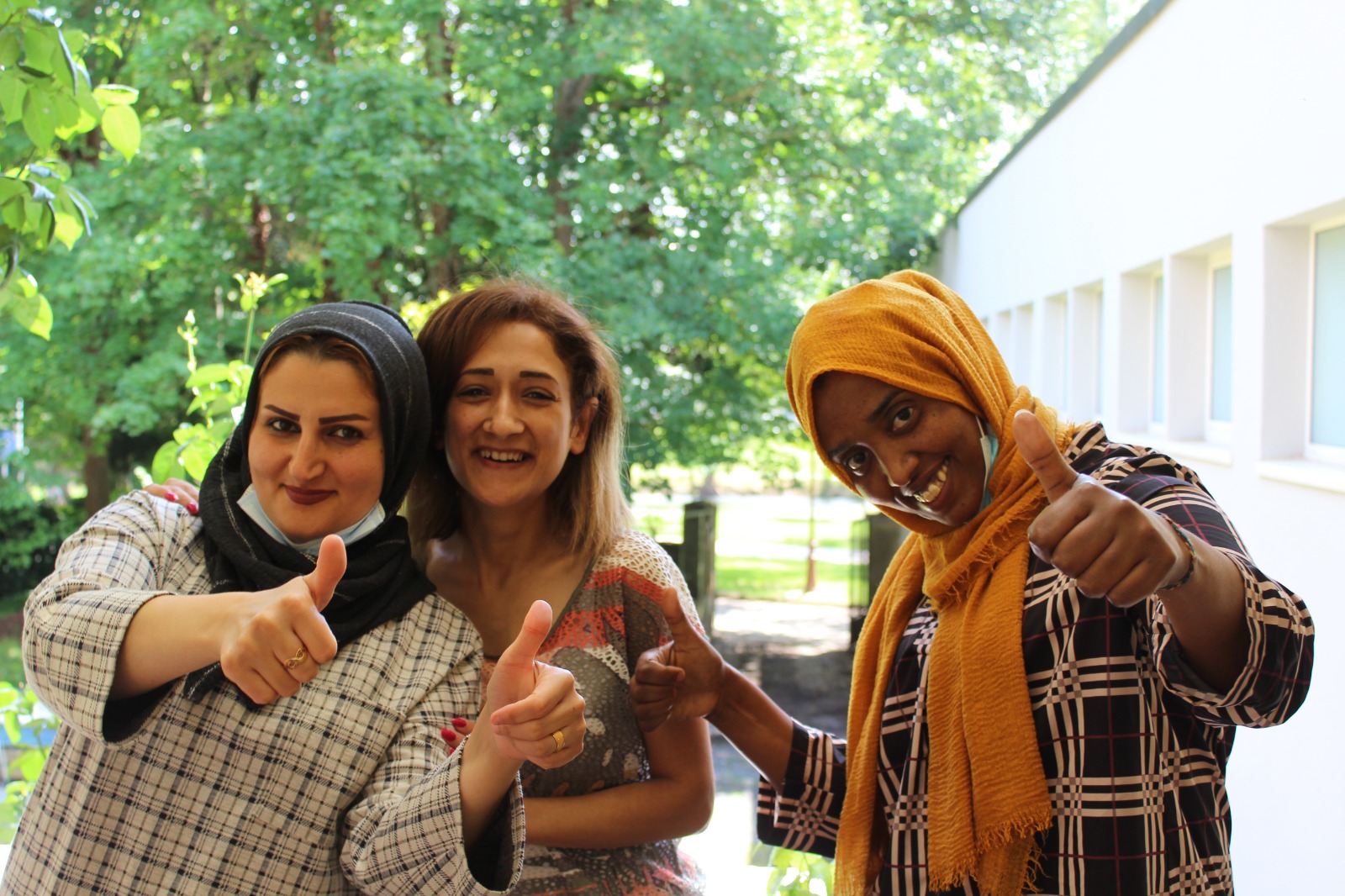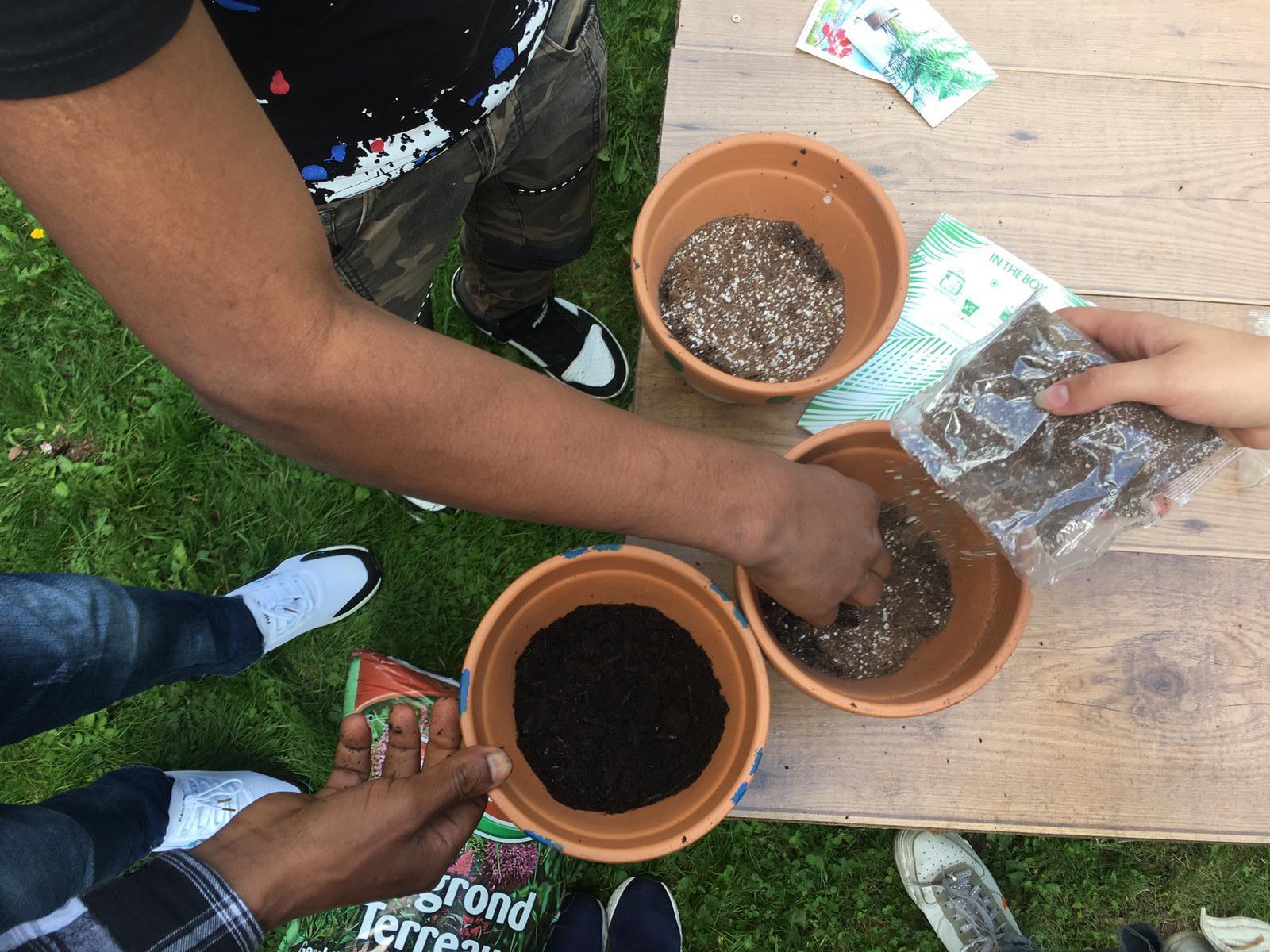Healing by doing – promoting mental health among beneficiaries of international protection
The hardship and suffering experienced by many throughout migratory routes can considerably impact the mental health of migrants and refugees. Furthermore, uncertainties about asylum procedures, prolonged separation from family members and relatives, as well as detention practices, often exacerbate the effects of such trauma. Hence, protecting and preserving the mental health of migrants and refugees is a key requirement to ensuring their long-term integration in their new home.
The consequences of mental distress often destabilise the integration prospects and undermine people’s capacity to engage with social services and reach out for available mental health and psychosocial assistance. Survivors of psychological trauma, including human trafficking or violence experienced during the migratory journey, are likely to face a significant loss of self-confidence and trust in other people and institutions, which can make it difficult to establish new relationships, learn the local language, focus on tasks and engage with new and different social codes. Untreated trauma can also lead to generalised anxiety, addictive or self-destructive behaviour, and social exclusion.

To support people who could not find help in existing institutions, the Luxembourg Centre for Integration and Social Cohesion (LISKO) operated by the Luxembourg Red Cross, has set up the ‘Atelier – Langue – Inclusion – Nouvelles Technologies’ – ALIN (Workshop – Language – Inclusion – New Technologies) project. ALIN targets beneficiaries of international protection who are experiencing psychological distress and survivors of human trafficking. The project proposes activities that can help people who are traumatised to avoid self-destructive-thinking patterns, enhance creativity and re-establish self-esteem, while at the same time exercising interpersonal skills.
A variety of practical activities are offered, including theatre and public speaking courses, upcycling of old furniture, computer training, art classes, wellness workshops, world cuisine and food tasting sessions. There are also therapeutic activities, such as relaxation and breathing techniques and group sessions on psychological education that are held in refugees’ mother tongues. Support to effectively plan and organise daily routines that help provide structure is also an important aspect of the ALIN programme.

The programme is tailored to each person’s specific needs following an initial psychological assessment. Participants are supported in identifying their own particular challenges and inclusion objectives, which are regularly re-considered within the programme. Following a first assessment, people supported by ALIN are assigned a schedule of workshops and activities based on their specific situation and needs. The activities proposed by the project aim to help support refugees’ first steps in learning a new language, developing useful skills for independent living and preparing for employment. Feeling welcome and accepted after long periods of isolation provides comfort and perhaps represents ALIN’s first and most concrete effect. “It has been a really long time since I had felt some happiness”, declared Zeppe, a refugee who was included in the ALIN programme because of his suicidal thoughts, after his first day in the LISKO project. Since his participation in the programme, Zeppe has been able to improve his mental wellbeing and build friendships.
ALIN enables participants to build trust and re-gain their self-esteem and confidence, helping them be better equipped to integrate into Luxembourgish society and participate in activities involving the local population.
To further support the integration and inclusion of third country nationals, the Red Cross in Luxembourg is committed to expanding its activities to provide opportunities for migrants and Luxembourgish citizens to meet and share social and cultural activities, reflecting how integration is a two-way process. In this context, the Luxembourg Red Cross will launch a new project aimed at promoting a more inclusive society by gradually expanding the comfort zone of migrants and locals through joint activities. By involving local participants, the project will help migrants in getting to know Luxembourg and fully participate in its social, political and cultural life. At the same time, it will provide local citizens with an opportunity for cultural exchange and active citizenship.
Basic information
Activity name
‘Atelier – Langue – Inclusion – Nouvelles Technologies’ – ALIN
Country
Luxembourg
Duration
2020 - ongoing
Partners
Luxembourg Red Cross

